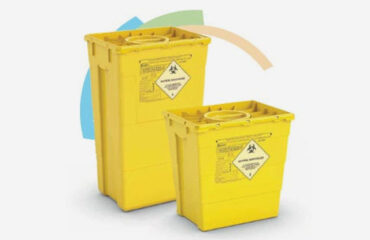The Ultimate Guide To Reclaim Waste
Table of ContentsNot known Factual Statements About Reclaim Waste 5 Easy Facts About Reclaim Waste ShownExcitement About Reclaim WasteReclaim Waste Things To Know Before You Get ThisReclaim Waste Things To Know Before You Buy
Discover the kinds, occurrences, and types of liquid waste. Residential sewage waste describes the waste and products from a domestic septic tank. This sort of waste is developed by people in houses, institutions, and various other structures. This only includes septic storage tanks that have a drain area. The proper monitoring and disposal of domestic sewer waste require liquid waste to be moved to a sewage treatment plant where the appropriate approaches and equipment are put on purify and get rid of waste.
Commercial waste usually includes potential dangers, such as combustible materials or a combination of fluid and strong waste items, and needs an advanced and comprehensive disposal procedure. The disposal of industrial waste normally entails the purification of waste before transportation to make sure safe and appropriate disposal. Hazardous waste is produced from results and drainage of commercial processes and production.
This kind of waste can not utilize the same sewer administration transport or procedures as septic or business fluids. The industrial waste administration process needs the evaluation and screening of liquid waste before it goes through the disposal process (industrial wastewater treatment). Runoff waste is the liquid waste that comes from runoff and excess stormwater in extremely inhabited areas or cities
Drainage waste can trigger contamination and flooding if not handled correctly. Guaranteeing proper waste administration can avoid disasters and reduce environmental injury.
The 20-Second Trick For Reclaim Waste
Get in touch with PROS Services today to discover our waste management and disposal services and the correct methods to look after the liquid waste you create.
(https://www.intensedebate.com/people/reclaimwaste1)Do you recognize what happens to your water when you disengage, purge the toilet or drain pipes the washing device? No? Well, it's worth knowing. This supposed 'wastewater' is not only an essential source but, after therapy, will certainly be released to our land, rivers or the ocean. Used water from toilets, showers, bathrooms, kitchen sinks, laundries and industrial processes is called wastewater.

water made use of to cool machinery or tidy plant and equipment). Stormwater, a type of wastewater, is overflow that flows from farming and city areas such as roof coverings, parks, gardens, roads, courses and gutters right into stormwater drains pipes, after rainfall. Stormwater streams untreated directly to neighborhood creeks or rivers, eventually getting to the ocean.
Reclaim Waste Fundamentals Explained
In Queensland, the majority of wastewater is dealt with at sewer treatment plants. Wastewater is delivered from residential or industrial websites with a system of sewage systems and pump stations, called sewage reticulation, to a sewer treatment plant. Regional governments build, keep and operate most sewage therapy plants. Operators are accredited under the Environmental Management Act 1994 to discharge cured wastewater at an appropriate environmental requirement into waterways.
The Division of Natural Resources advises neighborhood governments concerning managing, operating and keeping sewerage systems and treatment plants. In unsewered areas, city governments might need homeowners to install specific or home sewage treatment systems to deal with residential wastewater from toilets, cooking areas, bathrooms and laundries. The Department of Natural Resources authorizes using home systems when they are confirmed to be reliable.
A lot of stormwater receives no treatment. In some new class, treatment of some stormwater to get rid of clutter, sand and gravel has begun using gross toxin traps. Wastewater treatment occurs in 4 stages: Gets rid of solid issue. Larger solids, such as plastics and various other items wrongly released to drains, are removed when wastewater is gone through displays.
Wastewater after that flows right into huge tanks where solids clear up and are removed as anonymous sludge. Grease and scum are skimmed from the surface area. Uses small living microorganisms referred to as micro-organisms to damage down and remove staying liquified wastes and fine bits. Micro-organisms and wastes are included in the sludge. Gets rid of nitrogen and phosphorus nutrients that could trigger algal blossoms in our waterways and intimidate water life.
The Ultimate Guide To Reclaim Waste
Nutrient removal is not offered in all sewer treatment plants due to the fact that it calls for costly specialised devices. It is ending up being a lot more typical in Queensland. Clear liquid effluent created after treatment may still consist of disease-causing micro-organisms. If this effluent is launched right into waterways such as rivers or the sea, the micro-organisms will at some point die out.

This normally suggests wastewater has to be dealt with or pollutants removed before it can be discharged to waterways. The majority of wastewater flows into the sewage system. Under the Act, city governments provide authorizations and licences for eco pertinent tasks (Ages) involving wastewater releases that might have a neighborhood effect. The division carries out authorizations and licences to Periods involving wastewater launches that may have a local or statewide impact.
Fascination About Reclaim Waste
Monitoring supplies accurate info regarding water quality and can verify that permit conditions are being satisfied. The info gotten through monitoring provides the basis for making water quality decisions.